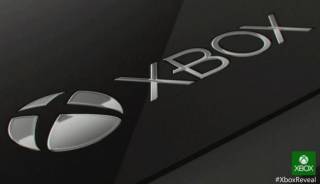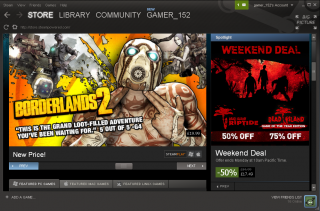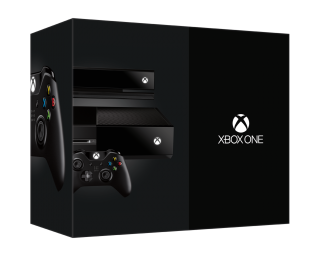Full Circle
By gamer_152 15 Comments
The Community's Voice
It has to be admitted that the recent clashing of horns between Microsoft and Sony has really brought out the emotion and passion in a lot of gamers. People were ready to be vocal and stand up to what they perceived as an injustice against loyal customers, and for a lot of this I was on board, but it once again became an occasion for the gaming community to prove there’s no problem so big that they still can’t treat it with a heavy dose of hyperbole. It was surprising how much traction the theory that the new Kinect was a super-secret spy device gained, and even in the relatively saner suburbs of the internet, people were accusing anyone with a pro-Microsoft stance of being “shills” working for the company, or just generally being compromised in their ability to give an honest opinion. Granted, Microsoft’s scarily bad PR job on the Xbox One did a lot of damage, but it was interesting how once again, with just the right combination of buttons pressed, large swathes of the gaming community turned into a paranoid and irrational rabble out for the blood of whoever they perceived to be siding with the enemy.

But now Microsoft has overturned their decisions, they’re removing the restrictions from the Xbox One, and so the storm should have subsided, right? Nope. To some degree the remaining unease over Microsoft as a console manufacturer seems perfectly justified. While they may have changed their minds now, nothing can erase the memory that they were entirely prepared to bring down the hammer and sell out a certain portion of their userbase for more control over people and their games. I also don’t think Microsoft deserves a big pat on the back and a cookie for not screwing over the people who have been their customers up to this point. They’re not so much doing something good now, as they are refraining from doing something bad. Having said that, I think some still fail to recognise how dramatic this move was for Microsoft as a company.
I’ve seen people criticising Microsoft for abandoning their old policies because it was once said that them doing so wasn’t as simple as flipping a switch, but now they have just “Flipped the switch” and made them go away. Of course, in reality it’s not that simple. Microsoft scrapping those policies meant them breaking the promises to all their business partners about what kind of console they were going to provide, and the collective effort, time, and resources put into the DRM on the Xbox One is essentially wasted. This was a decision with some serious negative repercussions for them, and for what they did I can’t help having a certain respect, but some gamers have other ideas. I’ve seen people attacking Microsoft on the basis that they “Backtracked”, because a small number of consumers have this bizarre notion that changing your mind to incorporate new circumstances and information is inherently a bad thing. I’ve even seen people take pot shots at Microsoft because conceivably they could reinstate their DRM via a patch to the console. This is certainly something to be cautious of, but you can’t attack Microsoft on hypothetical decisions they might make, but haven’t.
Still, on the brighter side, we have an example here of games enthusiasts being able to have a real impact on the industry. Some seem to be treating this as a situation where the changes Microsoft have made are purely the result of direct uproar from gamers, and this seems reductionist; we don’t know what Microsoft’s pre-order figures looked like, we don’t know if their investors, retailers, or other partners were a little too concerned with their policies for their tastes, and I’m willing to bet that Sony’s E3 reveals rumbled Microsoft a little. But directly or indirectly, people speaking up and rejecting the restrictive policies Microsoft were trying to impose made a difference. As much as people might tell us that discussions and collective consumer decisions can’t change anything, it’s once again been proven that’s just not true.
The Case for DRM
The thing that really surprised me about the reaction to Microsoft's 180 on their policies was the abundance of posts declaring that Microsoft had made the wrong decision and were holding back industry progress. With the abandonment of the intended Xbox One restrictions, also came the abandonment of discless play, games being tied to user accounts, and digital game sharing and selling. Arguments are also being made that now the console no longer requires a broadband internet connection that can check in every day, that developers won’t be able to utilise “the cloud” as effectively as before, and that Microsoft are no longer forging their way into a more digital-based future where games will cost less, be more convenient to purchase and use, and will deliver greater profits to the people who create them.
Some of these criticisms I agree with. Being able to play without the disc or lend games digitally to other people were genuinely great features, and I’m all for the rise of digital distribution when it's done right. However, I can’t help but think the Xbox One might have a better formed feature set if it weren’t for this last minute switch around that the company brought on themselves. If they’d sat down from the start with intent to marry a console experience for everyone with new digital freedoms and advantages, there would have at least been the opportunity for them to create a better set of policies, instead of rolling out a plan which they eventually considered unviable, cancelling it, and now having no time to replace it. At least, this is the case for now. Things are a bit up in the air, but judging by Marc Whitten’s comments, Microsoft are probably interested in taking their bearings and seeing what they can do in terms of new features some time after the console launches.
As far as the cloud goes, with the power of the next-gen consoles, it will likely be a while before most games need to start roping in external servers to help with number crunching, but Microsoft don’t seem to be just cutting off developer’s access to their processing servers, so I can’t see anything to stop game creators from still saying “This game requires an internet connection because it uses outside computers to do its job”. There will be a lower percentage of Xbox One users who can accommodate an always-on connection now, but it’s not as if this changes the number of people in the world that can support an always-on connection, and even under the old policies there would have been a serious problem of some users not being able to support cloud processing. Obviously, someone who does have broadband internet that can check in every 24 hours has a more reliable connection than someone who doesn’t, but there’s still a big gulf between that and them being able to maintain a constant broadband connection that won’t drop out.

I’m also sceptical of the idea that we would have had a virtual utopia of cheap digital games and huge benefits to those who wanted to trade-in under the old policies. I do believe we could have seen a rise in the accessibility and a fall in prices for digital titles, but the Xbox One was never going to be like the Steam it’s been repeatedly compared to. One of the major differences between the two is that Steam does not have complete control of the digital PC market, while Microsoft does have complete control of the digital Xbox One market.
Steam exists in a competitive environment where if they don’t keep offering cheap prices and plenty of sales, someone else can shuffle in and start doing it instead. On the Xbox One however, Microsoft has a monopoly by design. While there are competing prices for games between the consoles, on the Xbox, Microsoft can set the price of their games as high as they want, and that is the Xbox price. Similarly, yes, Microsoft could have bought your games for more than they would have sold for in a brick and mortar store, but they also could have done whatever they liked when they bought your games, because they would have been literally the one buyer to sell to. Rooting for a future where Microsoft has such a degree of control over the sale and purchase of their games is to root for a monopoly over healthy market competition. I also reject the idea that the control that the console would have given companies was good on the grounds that it would have made them financially safer, and less likely to deal in unscrupulous practises like online passes or tacked-on multiplayer. Why I believe that could be a whole blog in itself though.
Building a Wall
But okay, you might still be thinking that these features, even with their potential flaws, would have been great ideas that Microsoft were wrong to throw out. Again, I agree to some extent, but we mustn’t forget why this console was so controversial to begin with. In many of the posts and articles of those lamenting the old Xbox policies, I’ve seen the original issues with the policies outright ignored, or even waved away as irrational arguments coming from people incapable of free thought. I’ve spoken before about why I think a lot of connection-based restrictions are bad, but for the Xbox One the short version is that it would have excluded those who buy pre-owned on-disc games, locked out most of Europe, Asia, about half of South America, and all of Africa at launch, and no matter what people like Cliff Bleszinski may say, everyone does not have everything connected to broadband at all times, and many people just aren’t able to have it that way.

The people who’ve rallied against the Xbox One’s DRM policies have been accused of being short-sighted, because the Xbox One may seem terrible to us now, but hey, think of the future. I think in these accusations there’s a certain degree of far-sightedness, because yes, more people should be thinking about that console in the long term, but the bottom line is that right now we’re not in the future, and among having other problems, Microsoft know that console is built for a heavily digital age that many of us are not yet living in. Heck, even if you have a perfect internet connection, it’s been proven over the last couple of years that no games company is big enough to avoid server blackouts which severely affect their customers, and if your console has to sign in to verification servers to run, there remain unanswered questions about what happens the day those servers turn off.
The Way Forward
I find it unsettling that there are so many supporters for the policies that would place a barrier between passionate hobbyists and the games they want to play. It’s a weirdly corporate attitude that says “Well fuck the people who don’t have much money or live in the wrong places, the important thing is that the people with lots of expendable income who live in well-connected areas of wealthy western countries get a more advanced console”. I’m sorry, but I fail to see this as “progress”. I believe games and the systems that we play them on should be inclusive, not exclusive, especially when the gaming community still has so much growing to do, and gaming is already too exclusionary to too many people.
One of our great dangers right now is focusing solely on this issue of Microsoft’s policy flip and forgetting all the other potential problems with that console. Microsoft is still offering a less powerful piece of hardware than Sony, for more money, that isn’t supporting indie devs anywhere near as well. But I’m glad that this change has been made, I think it’s a good thing. The digital-centric future of gaming machines that the Xbox One was forging towards has not been lost, it’s just been delayed. We’re going to get there, but with any luck we’re going to get there the right way; without screwing over a large portion of the gaming population, and without handing over a copious amount of control to the publishers and manufacturers. Thanks for reading.